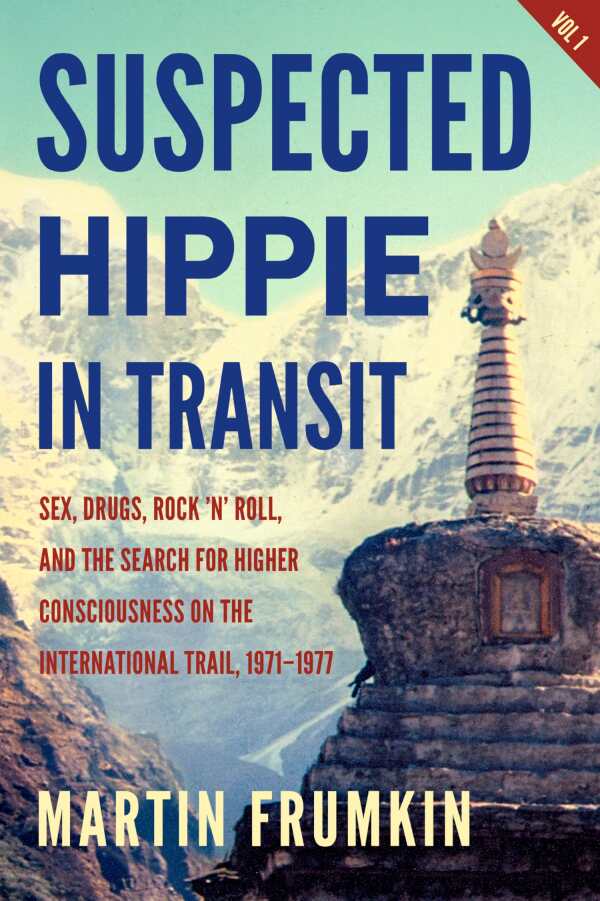Suspected Hippie in Transit
Sex, Drugs, Rock n Roll, and the Search for Higher Consciousness on the International Trail, 1971-1977: Volume 1
The travel memoir Suspected Hippie in Transit is filled with sharp observations about class, spiritual practices, and fellow seekers.
Martin Frumkin’s rollicking travel memoir Suspected Hippie in Transit follows his 1970s, Asia-based search for higher consciousness via explorations of Buddhism and Hinduism.
Among other places, Frumkin’s travels took him to Nepal, India, Afghanistan, and Thailand. His movements were marked by relentless curiosity about the local customs, cuisines, traditions, languages, and histories; in covering each element, his book is informative and empathetic. He writes that, out of respect for those he interacted with, he sought not to “play the role of the affluent, arrogant, condescending sahib, a role that does not appear to bother most Nikon-toting Westerners.”
Structured like a diary, the book is divided into three sections. Its third portion, devoted to Frumkin’s 1975 trip, accounts for most of its length. Internally, it is directed by detailed observations, as of purchasing two cups of chai and hot buttered rolls for a rupee at a fine tea stall, or about hot, crowded train rides and other hardships. It expresses occasional irritation over “obnoxious rickshaw men.” Its senses of Frumkin being caressed by ocean breezes and enduring a “hot, sticky, itchy, sleepless, and torturous night … under a worthless mosquito net” are vibrant.
Engaging and personable, the prose follows Frumkin’s shifting moods. At various points, he is idealistic, reverent, struck with wanderlust, and jaded. Profanities reinforce the book’s ethos of countercultural rebellion, and trenchant observations result in insights into others: British people, Frumkin notes, will stay in India for indefinite periods of time, while Americans often top out at about six months, “depending on how the political winds at home blow.”
The book is filled with sharp insights into the observed nations’ juxtapositions of affluence and poverty, spiritual practices, and visiting Westerners’ reluctance to try new things. And Frumkin’s travels are capped off by an account of his final night in India, where he reflects at length on the country’s breadth, diversity, poverty, wealth, culture, and religions. This poetic rumination is a fitting conclusion to the events that preceded it, though it also makes room for a following volume.
Black-and-white photographs appear throughout, with captions that clarify their place in the narrative. Those taken by Frumkin are artful, capturing the locales he visited and the locals he interacted with and deepening understanding about his quest. However, there are less evocative stock photographs present as well.
Vivacious and affecting, the travel memoir Suspected Hippie in Transit recounts epic trips taken in search of personal enlightenment.
Reviewed by
Joseph S. Pete
Disclosure: This article is not an endorsement, but a review. The publisher of this book provided free copies of the book and paid a small fee to have their book reviewed by a professional reviewer. Foreword Reviews and Clarion Reviews make no guarantee that the publisher will receive a positive review. Foreword Magazine, Inc. is disclosing this in accordance with the Federal Trade Commission’s 16 CFR, Part 255.

